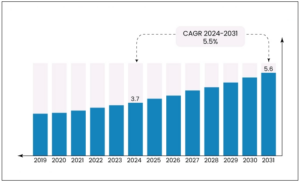Freight factoring is a financial solution tailored for the transportation and logistics industry. It involves selling unpaid invoices to a factoring company in exchange for immediate cash, helping trucking businesses manage their operational costs effectively.
This financing model eliminates the waiting period for client payments, ensuring a steady cash flow to cover day-to-day expenses.
By addressing financial gaps, freight factoring empowers businesses to focus on growth and efficiency. Let’s explore how it helps manage operational costs.
Improving Cash Flow for Day-to-Day Operations
Instead of waiting 30, 60, or even 90 days for client payments, businesses receive immediate funds from a factoring company. This quick access to cash ensures that essential costs like fuel, maintenance, payroll, and insurance are paid on time.
A consistent cash flow is critical for maintaining smooth operations, especially in an industry where costs are incurred upfront while revenue is often delayed. With freight factoring, trucking companies can avoid disruptions caused by financial shortfalls.
For example, a trucking business can immediately fuel its fleet or repair vehicles without relying on credit cards or loans.
Moreover, predictable cash flow allows businesses to plan better and avoid missed opportunities due to insufficient funds. By addressing these challenges, freight factoring becomes indispensable for managing day-to-day operational costs.
Reducing Reliance on Traditional Financing
Traditional financing options, such as bank loans or lines of credit, often have lengthy approval processes, stringent requirements, and interest obligations.
Freight factoring offers a flexible alternative that eliminates the need for conventional borrowing. Since approval is based on the client’s creditworthiness (shipper or broker) rather than the trucking company, it’s an accessible solution for businesses of all sizes.
Unlike loans, factoring doesn’t create debt. Instead, it converts unpaid invoices into immediate working capital, allowing businesses to manage operational costs without accumulating liabilities.
This debt-free approach is particularly beneficial for smaller or newer trucking companies needing help qualifying for traditional financing.
Freight factoring empowers businesses to maintain a healthier financial profile by reducing reliance on traditional credit options.
Securing funds quickly and without extensive paperwork ensures that trucking companies can focus on their operations rather than navigating complex financial arrangements.
Minimizing Administrative Burdens
Managing invoices and chasing late payments can be time-consuming and resource-intensive for trucking companies. Freight factoring alleviates this burden by taking over the responsibility of invoice management and collections.
Factoring companies handle tasks such as verifying invoices, following up with clients, and processing payments, freeing up valuable time for trucking businesses to concentrate on their core operations.
This administrative support is beneficial for smaller companies with limited staff or resources. By outsourcing these tasks to a factoring company, trucking businesses can reduce overhead costs associated with accounting and collections. Additionally, the streamlined process ensures that invoices are processed efficiently, reducing the risk of errors or delays.
Minimized administrative burdens translate to increased productivity and operational efficiency. With more time and resources available, trucking companies can focus on optimizing routes, improving customer service, and expanding their operations, all while maintaining a stable financial foundation.
Enhancing Scalability and Growth Opportunities
When a business secures a large contract or expands its fleet, upfront expenses such as fuel, driver wages, and maintenance costs can strain cash flow. Factoring ensures businesses have the funds to handle increased demand without financial stress.
The predictable cash flow enabled by factoring also makes it easier to invest in growth initiatives, such as upgrading technology, hiring additional staff, or entering new markets.
For example, a company looking to expand its services can use the immediate funds from factoring to cover initial expenses while waiting for client payments.
Additionally, factoring provides peace of mind, allowing businesses to focus on growth without worrying about delayed payments or financial constraints. This scalability makes freight factoring a strategic tool for companies aiming to expand and thrive in a competitive market.
Global Freight Factoring Services Market Size Forecast 2019-2031

The global freight factoring services market is poised for substantial growth from 2019 to 2031, driven by the rising need for efficient cash flow solutions in logistics and transportation.
Freight factoring has become an essential financial tool, enabling trucking companies and freight carriers to bridge payment gaps caused by delayed invoices.
By converting outstanding receivables into immediate cash, freight factoring helps businesses maintain steady operations, invest in growth, and manage fuel costs, maintenance, and payroll.
Technological advancements, such as automated invoicing systems and digital platforms, further support this growing reliance on factoring services, which simplify the factoring process and improve accessibility.
As global trade and e-commerce expand, the demand for reliable freight transportation increases, fueling the need for financial flexibility.
The freight factoring market is expected to see sustained growth, driven by its ability to streamline cash flow and support operational efficiency for businesses of all sizes.
Conclusion: Freight Factoring as a Strategic Cost Management Tool
Improving cash flow, reducing reliance on traditional financing, and minimizing administrative burdens empower businesses to operate more efficiently.
Furthermore, it supports scalability, enabling companies to seize growth opportunities without financial strain.
With its ability to address common cash flow challenges, freight factoring has become essential for ensuring stability and fostering success in a dynamic industry.

